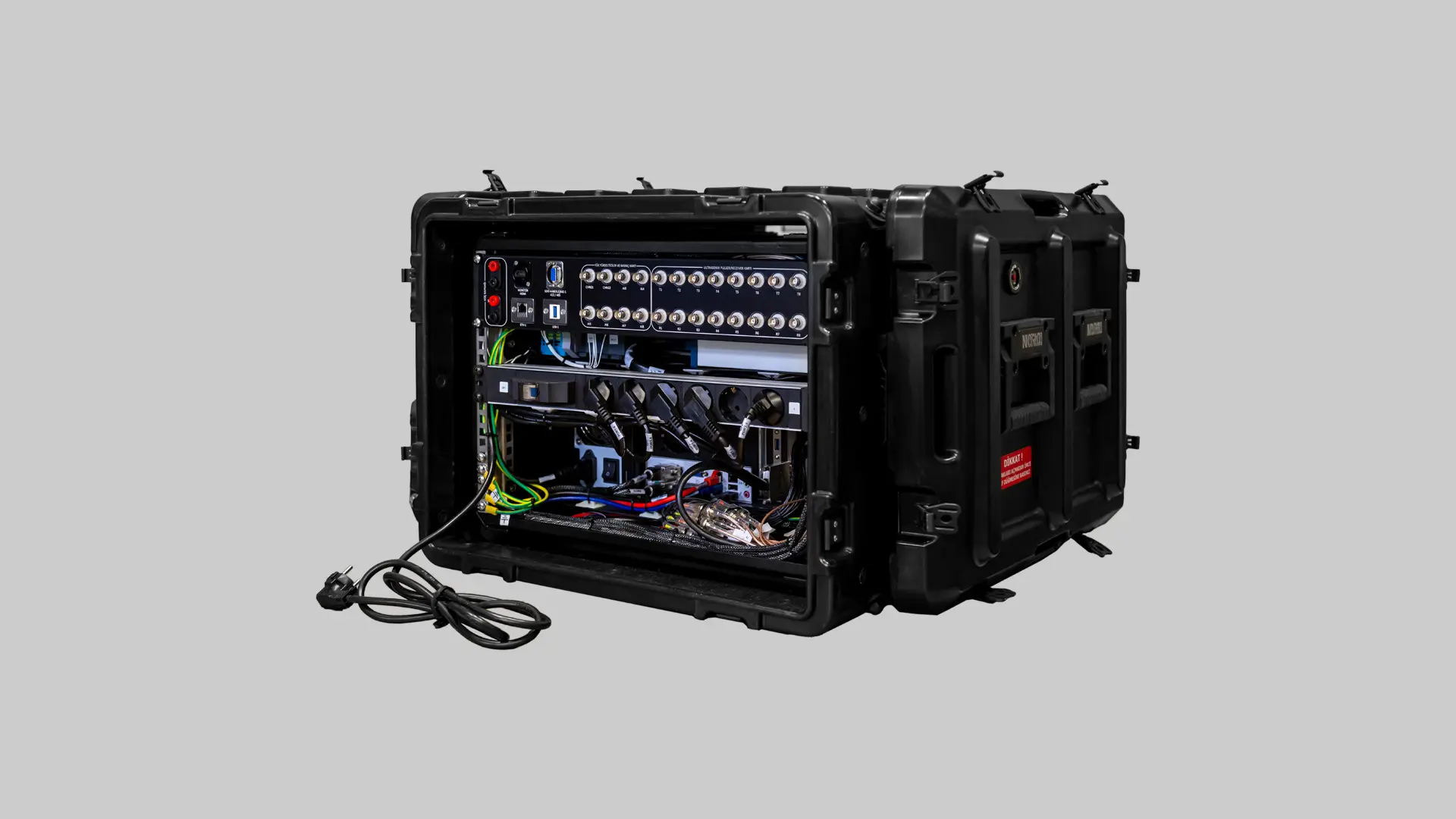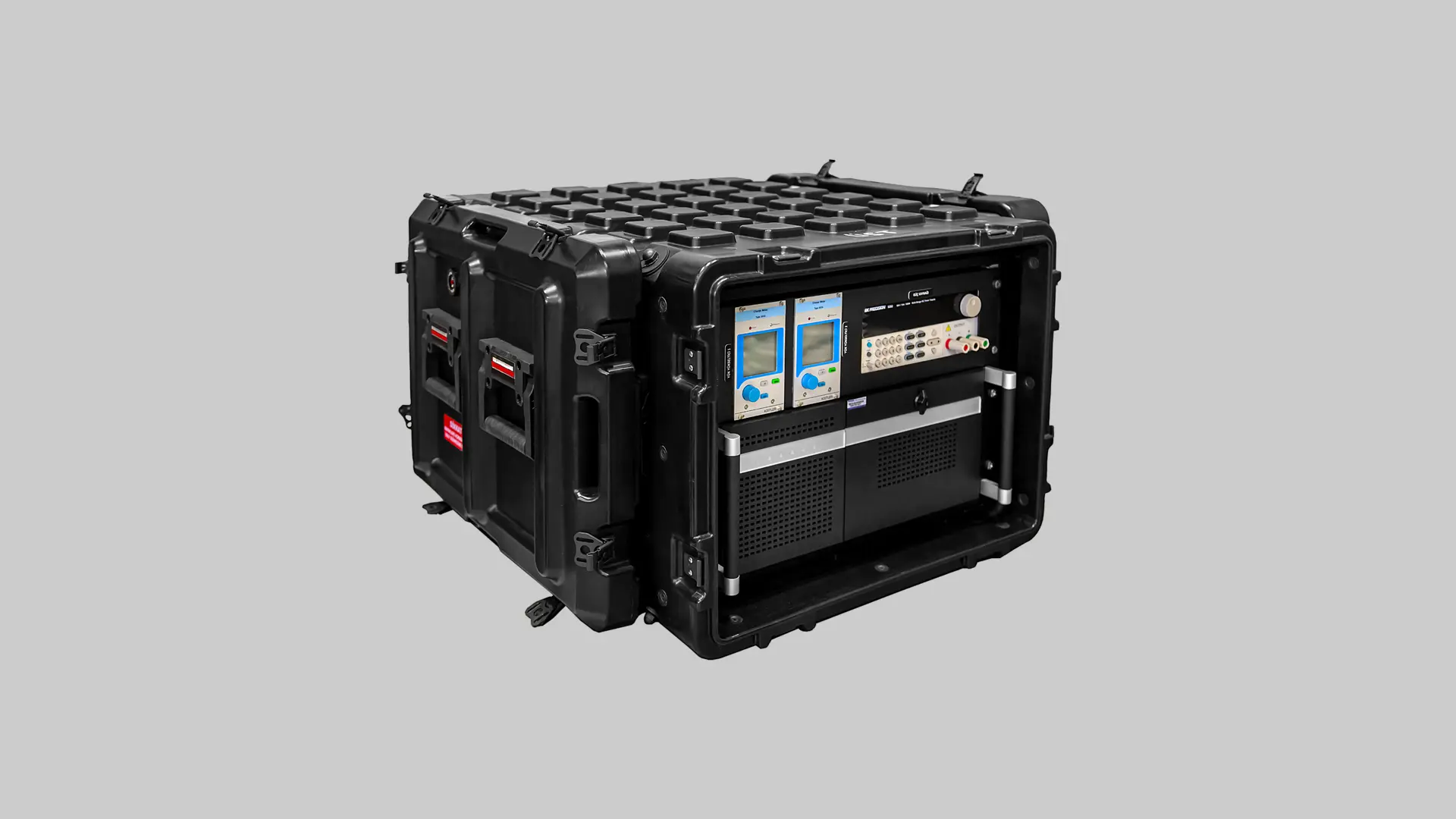Project Overview
Project Objective
UYHÖS is a data acquisition system developed to measure the combustion velocity of solid propellants through destructive testing. The system collects ultrasonic A-Scan and pressure data simultaneously, displays them at the end of the test, and generates full measurement reports through dedicated software and hardware infrastructure.
Target Platform and Industry
UYHÖS is mainly used in missile development platforms where solid propellant performance must be evaluated before integration.
Scope and Functionality
The system monitors the burning solid fuel sample using ultrasonic and pressure sensors throughout the combustion test, enabling detailed characterization of burning speed and pressure behavior.
Technical Specifications
System Capabilities
- Portable and field-deployable design using a rack-type SUPROBOX enclosure
- Six sensor input channels and six ignition output channels for sequential testing of multiple propellant samples
- High-speed data transfer via PCI and PCIe cards
- User-configurable interface allowing parameter-level adjustments
- Ability to recall and review previous test results
- UPS-based protection against power failure and electrical noise
- Automatic Gain Control (AGC) for stable signal acquisition
Standards, Protocols, and Compatibility
-
PCI and PCIe board interfaces
-
Charge-based sensor measurement units
DEICO Modules Used
-
DE2001 Single Module Mainframe
-
DE2101 General Purpose Relay Module
-
DE2102 16-Channel 16 A General Purpose Relay Module

Project Value and Impact
Why This Project Matters
Before a missile is fired, its propellant must be proven capable of generating sufficient pressure and achieving the required burn rate. UYHÖS provides the essential capability to validate propellant performance before integration into the missile system.
Customer and Industry Benefits
-
Enables pre-integration verification of solid propellant performance
-
Provides measurable ignition and burn rate data for qualification tests
-
Portable design allows on-site testing in operational environments
-
Helps prevent mission failure by confirming fuel performance before installation
